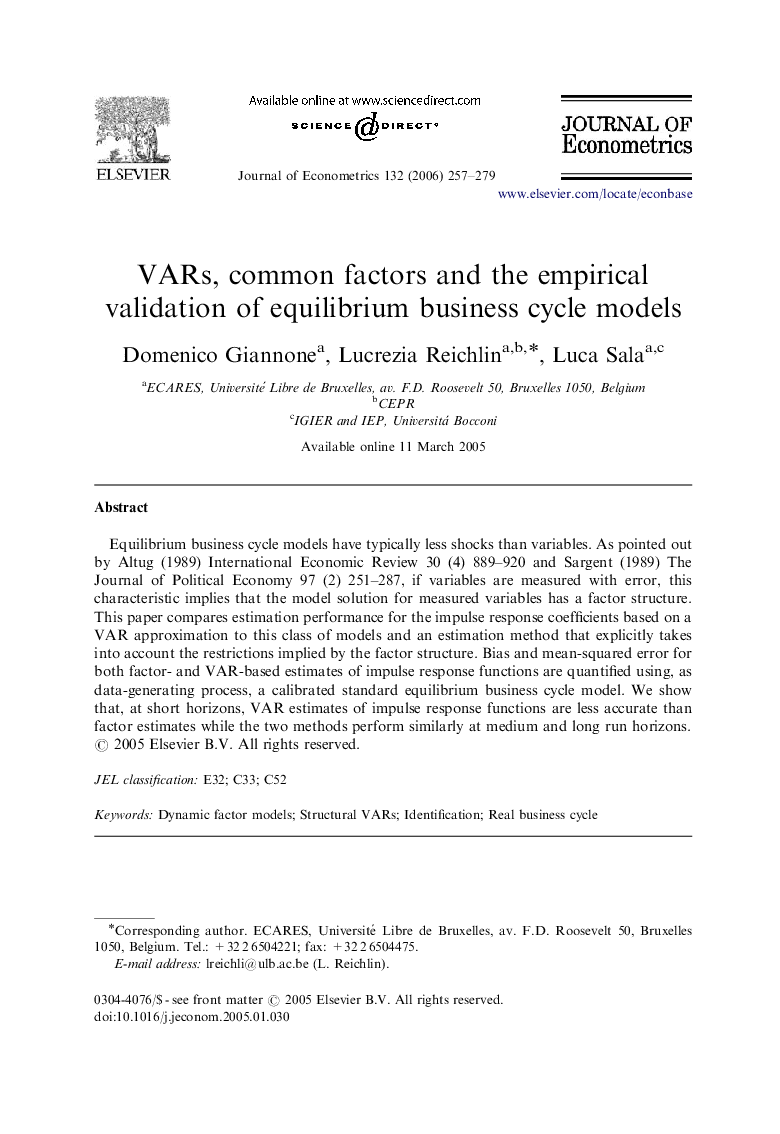| Article ID | Journal | Published Year | Pages | File Type |
|---|---|---|---|---|
| 5097620 | Journal of Econometrics | 2006 | 23 Pages |
Abstract
Equilibrium business cycle models have typically less shocks than variables. As pointed out by Altug (1989) International Economic Review 30 (4) 889-920 and Sargent (1989) The Journal of Political Economy 97 (2) 251-287, if variables are measured with error, this characteristic implies that the model solution for measured variables has a factor structure. This paper compares estimation performance for the impulse response coefficients based on a VAR approximation to this class of models and an estimation method that explicitly takes into account the restrictions implied by the factor structure. Bias and mean-squared error for both factor- and VAR-based estimates of impulse response functions are quantified using, as data-generating process, a calibrated standard equilibrium business cycle model. We show that, at short horizons, VAR estimates of impulse response functions are less accurate than factor estimates while the two methods perform similarly at medium and long run horizons.
Related Topics
Physical Sciences and Engineering
Mathematics
Statistics and Probability
Authors
Domenico Giannone, Lucrezia Reichlin, Luca Sala,
